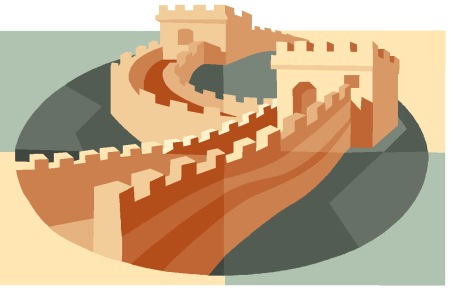Why? Well, for one, I’m traveling there tomorrow and just finished stuffing a suitcase full of everything I might need. Which, on a housekeeping note, I must tell you that while I am gone, there will be no WordHappy posts. Do not fear that I have abandoned ye faithful few. I shall return with all sorts of yummy things I got to read and hear and watch on the plane. Marathon Spongebob episodes on DVD, anyone?
The other reason I have China on my mind is because I recently finished an enormously good book chronicling three generations of women in China, beginning with the early twentieth century. Wild Swans: Three Daughters of China, by Jung Chang, is a book that needed to be written, and could only have been done so by her. It is the story not only of her family, but through a century of Chinese history so epic that it boggles the mind that it could be contained in only one hundred years.
The story begins with Chang’s grandmother, who in 1924 becomes a concubine to a general in Peking, during a time when China is mostly unified from the Kuomintang under Chiang-Kai-Shek. Her daughter, Chang’s mother, comes of age as the Communist Party is rising in China, marries a Party official and becomes one herself. The reader watches as she, along with the rest of China, idealistically follows the teachings of Mao Zedong, only to be persecuted and detained during Mao’s campaign to suppress counter-revolutionaries. Then finally there is Jung herself, who spends much of her childhood entrenched within the Cultural Revolution. It is she who sees China emerge as a global entity, meeting her first foreigners in 1975 and winning a scholarship to Britain in 1978.
Wild Swans is a fascinating, heartbreaking, and thought-provoking tale.

